Criminology 7 results
-
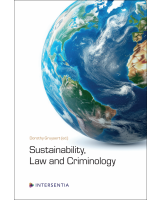
Sustainability, Law and Criminology
Book | 1st edition 2025 | Europe, United Kingdom | Dorothy GruyaertThe book aims to stimulate and strengthen cross-disciplinary research on sustainability, law and criminology and to provide inspiration for sustainability education and legal practice.
€140.00 incl. VAT -

Criminology and the Criminal Justice System
A Historical and Transatlantic IntroductionBook | 1st edition 2017 | United Kingdom | Cyrille FijnautThis book is for everyone interested in the historical development of the ideas on crime and punishment and their impact on the criminal justice system and the fight against crime more widely. This is the first published study not only to discuss the development of criminology and the criminal justice systems of Western Europe (Belgium, the Netherlands, Germany, France, Great Britain and Italy) but also to delve into the interplay with the evolution of the system in the United States from the end of the eighteenth century up to this day.€80.00 incl. VAT -
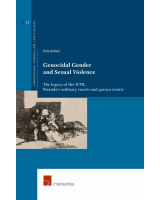
Genocidal Gender and Sexual Violence
The legacy of the ICTR, RwandaÉs ordinary courts and gacaca courtsBook | 1st edition 2013 | World | Usta KaitesiGenocidal Gender and Sexual Violence examines how the experiences of victims of genocidal gender and sexual violence have been addressed on a theoretical and practical level.€69.00 incl. VAT -
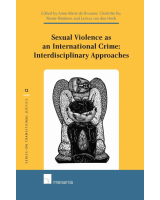
Sexual Violence as an International Crime: Interdisciplinary Approaches
Book | 1st edition 2013 | World | Anne-Marie de Brouwer, Charlotte Ku, Renée Römkens, Larissa Van Den HerikThis edited volume will focus on developments in the prosecution of cases of sexual violence in (post-)conflict situations. The prosecution of those cases raises new and challenging questions as to how to build evidence, but also how to address victims’ concerns in that process. It will address innovations and challenges of empirical and other new kinds of social scientific, archival and medical data collection techniques; the development of evidence in relation to charges ranging from sexual violence as a war crime to genocide; and evidentiary and procedural differences and difficulties involved in prosecuting sexual victimization in domestic versus international courts.€100.00 incl. VAT -
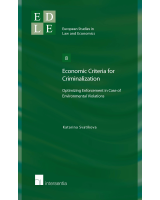
Economic Criteria for Criminalization
Optimizing Enforcement in Case of Environmental ViolationsBook | 1st edition 2012 | Europe | Katarina SvatikovaThis book examines the question why – from an economic perspective – society should enforce certain violations through criminal law, while others through private or administrative law.€75.00 incl. VAT -
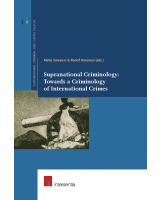
Supranational Criminology: Towards a Criminology of International Crimes
Book | 1st edition 2008 | World | Alette Smeulers, Roelof HavemanThe study of international crimes, like war crimes, crimes against humanity and genocide, deserves to grow into a separate and fully fledged specialization within criminology: supranational criminology. This book aims to repair the fundamental and historical neglect of criminology and to break out of a state of denial by putting international crimes on the criminological agenda.€105.00 incl. VAT -
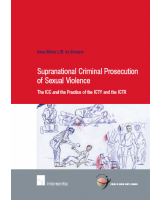
Supranational Criminal Prosecution of Sexual Violence
The ICC and the Practice of the ICTY and the ICTRBook | 1st edition 2005 | United Kingdom | Anne-Marie de BrouwerThis study assesses the supranational criminal prosecution of sexual violence, notably whether supranational criminal law and procedure are adequate from the perspective of victims of sexual violence.€105.00 incl. VAT